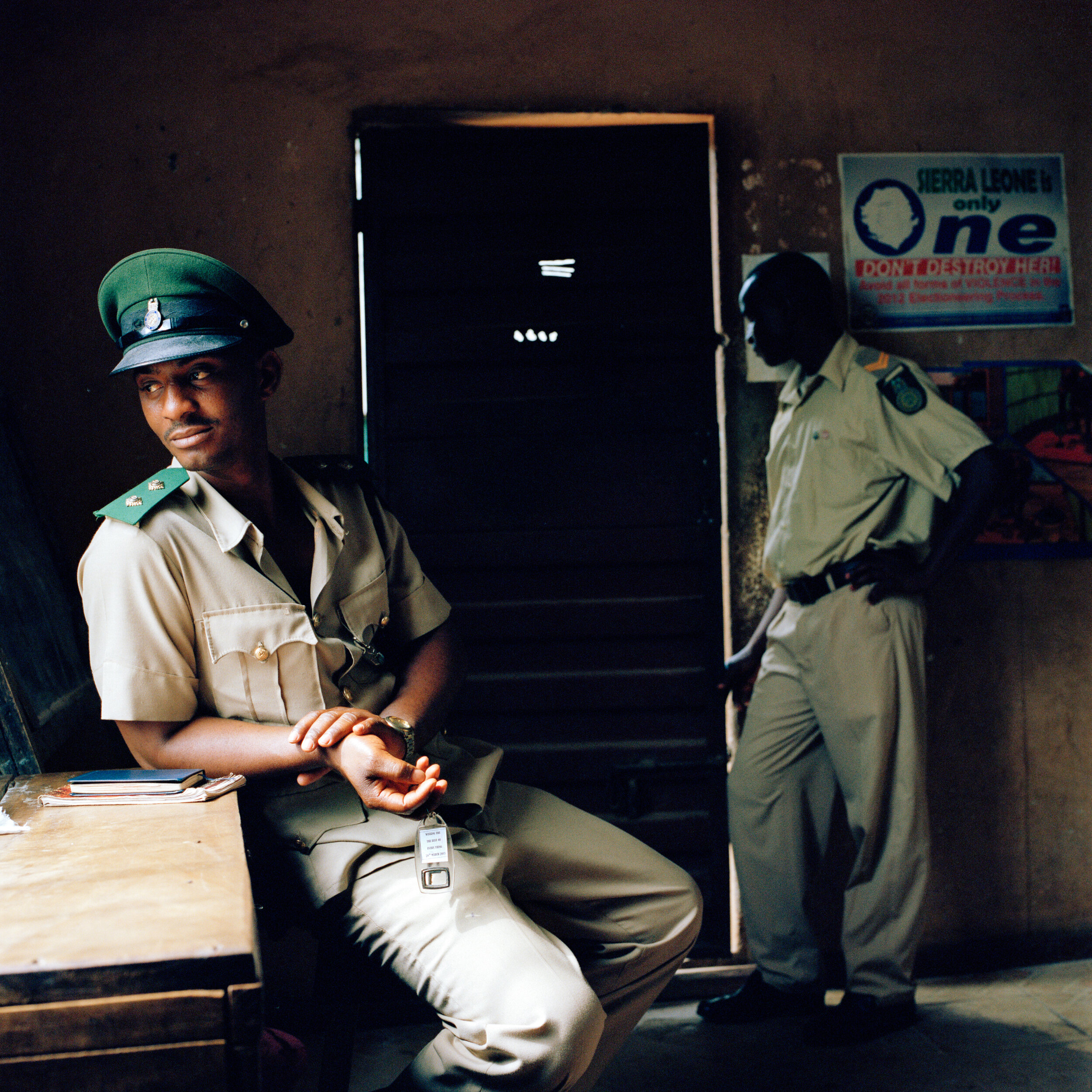Both western and customary legal systems are recognised and practised in Sierra Leone, a legacy of British colonial rule. In Makeni, the president's home town, you find a High Court in session just a stone's throw from the court of the Paramount Chief, convened on the ground floor of his residence.
Grassroots advocates, known as community-based paralegals, use their training in both systems to advise and guide people. Mamie Queens hear disputes and make judgements in the marketplace. Elected youth leaders sit on police partnership boards in an effort to improve community policing. The few lawyers who do practice in the country nearly all do so in the capital, Freetown.
Access to justice is as much about securing basic rights and access to services as it is about holding others to account or resolving disputes. At the end of the war the Truth and Reconciliation Commission cited widespread lack of justice and consequent impunity as major factors fuelling the decade long conflict. Access to justice matters.














